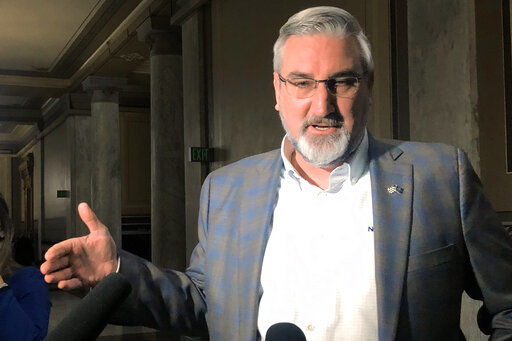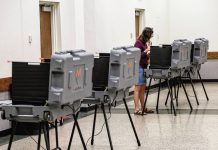INDIANAPOLIS (AP) — The Indiana governor’s office racked up more than $500,000 in legal bills for its successful court fight against an attempt by state legislators to give themselves more power to intervene during public health emergencies.
The state has paid almost $520,000 to the Indianapolis law firm Lewis Wagner for its representation of Republican Gov. Eric Holcomb in the lawsuit, according to records from the state auditor’s office.
The governor’s office didn’t immediately reply Friday to a request for comment.
Holcomb hired the law firm as Republican state Attorney General Todd Rokita, whose office typically represents the state in court, sided with the GOP-dominated Legislature in the dispute. The law aimed to give legislative leaders authority to call the General Assembly into an “emergency session” after the governor declared a statewide emergency.
The Indiana Supreme Court agreed with Holcomb, issuing a unanimous decision in early June that the law violated the state constitution.
The governor’s office first signed a contract with the law firm in July 2021 for up to $195,000. That contract was amended in November and June to increase the maximum amount to $525,000.
The attorney general’s office, which represented the Legislature in the dispute, did not track the time its staff spent on the case or hire any outside assistance, Rokita spokeswoman Molly Craft said.
Despite the state Supreme Court’s ruling that the law was unconstitutional, Rokita said in a statement that the governor’s legal bill “was a waste of Hoosier taxpayers’ hard-earned money.”
“As we pointed out in this case, Indiana taxpayers already pay the office of the attorney general to litigate these types of matters on their behalf,” Rokita said.
The state Supreme Court’s decision settled the legal fight that lasted more than a year over the law that was a response to Holcomb’s efforts to deal with the COVID-19 pandemic. Holcomb’s lawyers contended that the state constitution allows only the governor to call the Legislature into meetings for consideration of new laws outside of its annual sessions that begin in early January and adjourn by the end of April.





